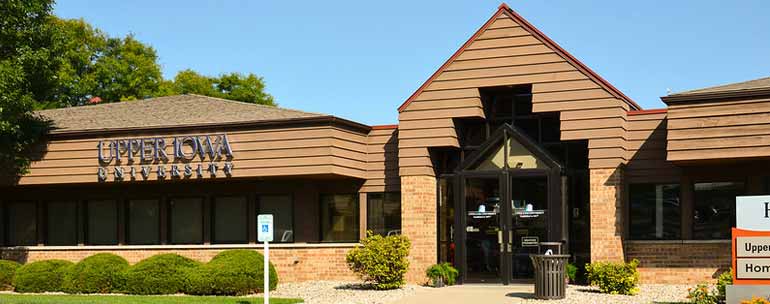Can online classes start anytime? If you are considering enrolling in an online degree program, you may be wondering about how course scheduling and academic calendars work for these types of programs.

There are many online college courses you can start anytime, so you can likely find a degree program that meets your particular scheduling needs.
Editorial Listing ShortCode:
If you have your finances in order and have met any necessary prerequisites, you may even be able to find online schools starting now.
Can Online Classes Start Anytime?

Yes, there are online colleges you can start anytime. Traditional on-campus classes have students meet in the same location at a set time every week. On-campus start dates are usually only available once or twice per year, usually at the beginning of fall and spring semesters.
Online degree programs do not necessarily attempt to duplicate this aspect of education, and many have multiple available start dates throughout the year. Start dates for courses may be available three or four times per year, or even once every one or two months. There’s a chance you can even start school online now.
Editorial Listing ShortCode:
These degree programs often feature academic calendars in which fast courses run for 4 weeks, 6 weeks, or 8 weeks at a time. Because the courses cover a lot of material in a relatively short timeframe, students usually do not take more than one or two courses at a time.
Enrolling in an online degree program may enable you to:
- Better coordinate your study schedule with other responsibilities
- Pursue a degree while working full-time or serving in the military
- Complete your degree faster
- Save time and money from not needing to commute
In addition, these types of programs sometimes provide more flexibility with regards to when you are expected to listen to lectures or complete other coursework. This way, your studies can interfere as minimally as possible with your regular life and schedule outside of school.
Types of College Admissions

Here are some explanations of the different types of college admissions processes.
Regular Admissions
This type of admission process is called regular admissions because it is the type most commonly used. Most colleges and universities allow you to apply through regular admissions even if they also have other admissions options available.
In a regular admissions process, applications are usually due in January, and you would receive the admissions decisions sometime in the spring. At some schools, students who are accepted through regular admissions have their applications automatically reviewed to see if they qualify for merit scholarships or other financial aid from the school.
When you apply through regular admissions, there are no restrictions on how many schools you can apply to.
Rolling Admissions

A rolling admissions process allows potential students to apply at any time throughout the year. This is very common for even the most reputable online colleges. There are even some online classes for college that start every month. You can usually expect to hear back about your admissions decision within a few weeks.
This type of admissions makes it easy and convenient for you to apply for and start school at whatever time of year best suits your personal schedule.
Open Door Policy
An open door policy allows learners from a wide variety of educational and personal backgrounds to apply.
Schools with open door policies, often referred to as open admission colleges, do not require you to submit test scores or to meet a minimum grade point average. Some might require that you submit personal references. Generally, the only formal educational requirement in an open door policy is that you have a high school diploma or GED.
Early Action

Early action admissions enable you to apply to a college or university before other applicants who are going through the regular admissions process. You can also receive an admissions decision sooner.
To apply early action to any college or university, you will usually be expected to submit your application and all supplementary materials by October or November. You can check the website of the specific school you intend to apply to in order to find out their specific early action deadlines.
Applying through an early action process might be a strategic option if you are already certain of where you want to apply and are eager to get an admissions decision quickly.
Early Decision

Early decision admissions exist as a way for a university to find the applicants who most want to attend school there.
In an early decision admissions process, an applicant must commit to attending a certain school if they are accepted there. You cannot apply early decision at more than one institution.
Editorial Listing ShortCode:
As with early action applicants, early decision applicants are usually expected to submit applications and all supplementary materials by an earlier deadline than those applying through regular admissions. They can also usually receive admissions decisions sooner.
Applying early decision might be beneficial if you are already certain that you want to attend a specific school and that you have the financial means to afford it. Early decision admissions are more likely to be an option when applying to traditional on-campus degree programs rather than online programs.
Early Evaluation

Early evaluation is a process in which—prior to actually applying to a college through a regular admissions process—you receive an evaluation as to whether your acceptance is likely, possible, or unlikely. You will receive a formal decision later on.
You can use the early evaluation to help you decide whether to continue applying to other colleges and universities.
Deferred Admission
A deferred admissions process enables you to apply and gain acceptance at a college or university but to postpone enrollment for a year.
Deferred admissions can be a strategic choice for a graduating high school senior who wants to take a gap year to volunteer, travel abroad, or gain real-world work experience. You can usually find out whether a college or university allows deferred admissions by checking their website.
When Does Online School Start?

Online classes can start at almost any time of year, and there are many online colleges starting soon. Some online degree programs follow a traditional academic calendar, while others have multiple start dates or are self paced.
Below are some explanations of these different types online learning schedules so that you can decide which one would work best for you.
Academic Calendar Systems

Many online degree programs are offered through traditional colleges and universities, with classes being taught by the same faculty who teach on campus. In these cases, online courses often follow the same calendar used for on-campus classes.
Most traditional colleges use a semester, trimester, or quarterly calendar system, with each academic year divided into 2 terms, 3 terms, or 4 terms, respectively. At the beginning of each term, students start new classes, and at the end of each term, they get their grades.
New students must matriculate at the beginning of a term, which means there are usually no more than four opportunities per year to begin working toward your degree. At some traditional colleges, you can only start classes in the fall or spring. Many traditional schools also offer winter or summer courses.
Multiple Start Dates

Some online degree programs have shorter terms than those in a traditional academic calendar system. Classes usually last just 6 weeks to 8 weeks, with most students only being enrolled in one or two classes at a time.
This may allow for at least 6 start dates per year, typically once every two months. At some schools, start dates may even be available as often as once a month! With this academic structure, once you have been accepted to the degree program of your choice, you do not need to wait long to start your classes.
Self Paced Online College Programs
Self paced online colleges usually follow an asynchronous format. Asynchronous classes allow you to work your way through lessons and assignments at your own pace, as long as you complete all the work by a certain deadline.
Generally, you are not required to log in to a course at any specific time to meet with instructors or other students. You may even have the opportunity to begin self paced courses any day of the year.
Editorial Listing ShortCode:
This type of program provides the ultimate scheduling flexibility, and it is often well-suited to students who are highly motivated and able to manage their own time.
How Many Hours a Day Should I Do Online Classes?
The answer to this question is subjective and depends on the program you’re in. For an undergraduate degree program, it is usually helpful to set aside at least 1 hour per day to work on coursework. For a graduate level program, you may want to set aside 2 hours per day.
The amount of time you spend studying can vary from one class to another, depending on how difficult you find each class. You may be able to spend less time studying if you find ways to work efficiently so that you can get more done in less time.
Can You Be Enrolled in Two Different Colleges at Once?

Yes, it is actually possible to be enrolled in two different colleges at once. This practice is sometimes called co-enrollment or dual, simultaneous, cross, or concurrent enrollment.
If you choose this option, it’s necessary to choose one four-year school to be your degree-granting institution. If your primary school agrees to give you credit for courses taken at a second school, you can be enrolled in both at once.
This may be an option to consider if you’ve been accepted to two different degree programs and want to experience the benefits of both.
What’s the Difference Between Correspondence Courses vs. Online Courses?
Here are some differences between correspondence courses and online courses.
| Correspondence Courses | Online Courses |
|
|
Both online courses and correspondence courses provide a way for colleges and universities to serve students who cannot easily come to campus.
What’s the Difference Between Synchronous vs. Asynchronous Classes?
Here are some differences between synchronous and asynchronous online classes.
| Synchronous Classes | Asynchronous Classes |
|
|
Some online degree programs may include both synchronous and asynchronous courses.
Universities Offering Online Programs That Offer Flexible Start Time
Methodology: The following school list is in alphabetical order. To be included, a college or university must be regionally accredited and offer degree programs online or in a hybrid format with a flexible start time.

At Arizona State University, classes are offered in 7.5 or 15 week sessions. Summer sessions are six or eight weeks long. There are two start dates each fall and each spring and one in the summer, for a total of five start dates per year.
ASU is accredited by the Higher Learning Commission of the North Central Association of Colleges and Schools.

Colorado State University’s online degree programs feature 8 week classes, and start dates are available once per month. There are three trimesters with four terms each. Since the terms overlap with each other, students are on one of two tracks: Gold or Burgundy, depending on when they start.
Colorado State University is accredited by the Higher Learning Commission.

Columbia College is a community college in California. They offer classes online and on campus. CC uses a traditional academic calendar with 16 week semesters. Prospective students can apply at any time and, if accepted, start at the next available start date, which will be at the beginning of either the fall or spring semester.
Columbia College is accredited by the Higher Learning Commission.

Fort Hays State University offers classes in traditional 16 week semesters during the fall and spring. They also have an 8 week summer term and a 3 week winter intersession with limited course offerings. Accepted students can start at the beginning of fall or spring semesters. Classes follow the same academic calendar both online and on campus.
FHSU is accredited by the Higher Learning Commission.

Liberty University’s calendar has three semesters, with three 8 week class sessions available within each semester, for a total of nine possible start dates per year. Within a 16 week semester, one 8 week session is the first half and one is the second half. There is also a third 8 week session that overlaps with the other two.
Liberty University is accredited by the Southern Association of Colleges and Schools Commission on Colleges.

The fall and spring semesters at Purdue University are divided into two 8 week sessions, so students can potentially start classes halfway through a semester. There is also a summer session with 4, 8, and 12 week long classes, with a total of eight possible start dates each year.
Purdue University is accredited by The Higher Learning Commission of the North Central Association of Colleges and Schools.

Rasmussen University uses a quarter term system that has four start dates per year. They offer a variety of degree programs in business, justice studies, design, nursing, education, technology, and health sciences. Rasmussen has a generous transfer credit policy and awards credit for qualifying military training and relevant professional certifications.
Rasmussen University is accredited by the Higher Learning Commission.

The University of Florida offers online courses in an asynchronous semester system. Students in the program may start their courses at any time. Once they’ve started a course, they have 16 weeks to complete it. These courses are fully accredited by the SACSCOC and have open admission.
The University of Florida is accredited by the Southern Association of Colleges and Schools Commission on Colleges.

The University of Illinois has both 8 and 16 week classes available. The 8 week classes have four start dates per year. The 16 week classes have two start dates a year, in the fall and spring. UI offers over 7,000 classes per year, and 80% of those classes have fewer than 50 students.
The University of Illinois is accredited by the Higher Learning Commission.

The University of Maryland Global Campus offers a variety of convenient and flexible scheduling options. Fully online classes start eight times per year, and hybrid classes start six times per year. UM Global uses a rolling admissions process so that prospective students can apply at any time.
UMGC is accredited by the Middle States Commission on Higher Education.

The University of Massachusetts Global offers degrees in the arts and sciences, business, education, and nursing. They use a trimester system, with each trimester including two sessions, for a total of six start dates per year. Classes are eight weeks long. Prospective degree-seeking students may apply at any time throughout the year.
The University of Massachusetts Global is accredited by the WSCUC Senior College and University Commission.

The University of North Dakota offers a variety of scheduling options to meet students’ needs. Online courses are available in both 7 and 14 week sessions. The 7 week classes begin six times per year, and the 14 week classes begin three times per year. UND offers over 120 online programs and certificates.
The University of North Dakota is accredited by the Higher Learning Commission of the North Central Association of Colleges and Schools.

The University of Oklahoma uses a traditional academic calendar in which students can start classes at the beginning of fall or spring semesters.
UO has colleges of architecture, allied health, arts and sciences, atmospheric and geographic sciences, engineering, and international studies. Other options include nursing, journalism and mass communication, education, business, and fine arts.
The University of Oklahoma is accredited by the Higher Learning Commission.

Upper Iowa University offers six start dates per year, with each session being 8 weeks long. Students typically take two courses at a time. UIU also offers self-paced online courses that start monthly. Students are allowed up to six months to complete these courses. Anyone can enroll in the self-paced courses without admission to UIU.
Upper Iowa University is accredited by the Higher Learning Commission.

Waubonsee Community College offers 16, 8, and 4 week courses. There are a total of twelve possible start dates per year. Weekend courses are available for the convenience of working adults. Waubonsee has an open admissions process to make it easier to enroll. Degree programs are available in business, education, STEM fields, and other subjects.
Waubonsee Community College is accredited by The Higher Learning Commission.
Getting Your Degree Online

With so many different options available for earning degrees online, you might be able to begin your educational journey as soon as you want. Many online degree programs allow for a lot of flexibility, enabling you to pursue your degree while working or maintaining other commitments.
There are still many learning structures you can choose from when pursuing a degree online. Online programs can follow a synchronous or an asynchronous schedule, traditional semesters or shorter terms, such as 5 week online college courses, 6 week online college courses, or 8 week online college courses available at some schools.
You may also have the choice of part-time or full-time schedules. There are even hybrid programs that include a combination of online and traditional classes.
Nearly any type of degree that can be earned at a traditional college or university can also be earned at the best online colleges. If you’re ready to begin your educational journey, you can start exploring online programs from accredited schools today!

